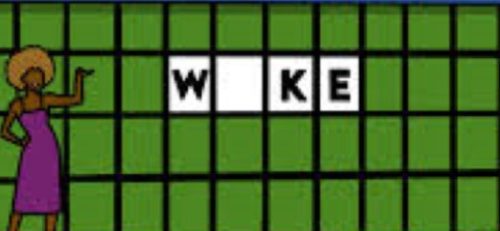This is a guest post by encaustum
The Israelis are doing their best to stop the Palestinian drive for independence via the UN. This is understandable, as seeking independence this way circumvents the entire peace process, and puts the Israelis onto the defensive. The question is though, is this so bad for the Israelis, and, is this a good move for the Palestinians. I believe this will be disadvantageous to the Palestinians, although this does not imply an advantage for Israel.
On a higher level, independence by the Palestinians, and the creation for the first time in history of an independent Arab Palestinian state will have consequences probably not yet thought of. In short, when one declares independence, one also declares one’s limits. In other words, declaring that the 1949 ceasefire line (which, mostly, held until 1967) would be one’s borders, implies anything beyond that is foreign. In this instance, what’s beyond the border will be Israel. Consequently, the Palestinians are also freeing Israel from Palestinian territorial interest, which is why Hamas have gone on record condemning it. 43 Years ago Arafat declared the infamous 3 nos. Now, Abbas has in effect reversed that decision, and, accepted the 1968 Israeli Alon plan for Palestinians’ independence.
Moreover, by declaring one’s limits, and accepting a smaller than dreamt of Palestine he’s denying the Palestinian refugees something they’ve clung onto, namely that there could be a Palestine encompassing modern Israel.
Technically, the Palestinian refugees, as per the work of Goodwin-Gill, are represented by the PLO, but not the PA. This is due to the PLO, not the PA, being defined by the UN as being responsible for the Palestinian nation, not limited by geography. As such, an interesting situation arises. If a State of Palestine is declared, then it can either be an upgrade to the existing observer status, or a new entity. However, Palestine will have grown out of the PA, not the PLO, thus, unless the PA absorbs the PLO, it will be a new entity. The issue is that the PLO represents all Palestinians and Palestinian groups (including the PA), meaning that if there is an upgrade, this responsibility would pass to the new State, something which has already been declared as not happening, and it would also mean the child, the PA, absorbing the parent, the PLO, again, this would be resisted.
Therefore, the question is what will happen to the PLO. It might lose its observer status at the UN, and hence, as Goodwin-Gill says, the refugees become not only stateless, but unrepresented at the UN. The alternative is for the PLO to keep its observer status, but that would result in a UN seat for the Palestinian State, and observer status for the Palestinian nation, which is unlikely. Quod erat demonstrandum, a State of Palestine will be worse for the Palestinian refugees, unless the Palestinian State accepts them. Indeed, from a PR perspective, this would be useful for Israel, as they would be Palestinian refugees, unaccepted by their state, and by the people who claim to represent them.
This is of course a practical consequence of independence, and whilst the Palestinians might see themselves as refugees, they will now have a responsible government, and be represented by it. In effect, they will be seen by the UN as not being stateless and as having a home country they could move to, and, hence, not refugees. Of course, they may try and stay refugees, or indeed, Abbas would deny them entry, to keep a lingering sore against Israel, but this would lead to a more peculiar legal position, as well as the probable cessation of UN aid.
In 1967 Israel supported resolution 262 (and it’s follow-on, 338), whereas the Muslim world opposed it. Resolution 262 of course is the resolution which put into place the land-for-peace concept, containing within it the necessity that it follows a peace deal; which means, of course, recognition of Israel, and accepting the 1949 ceasefire line, with some adjustments, as its border. It is this point, recognition, with the implied acceptance of a Jewish state, separate from an Arab state, that caused the Arab world to reject the resolution. It’s ironic therefore that Arabists and anti-Israelists keep talking about forcing Israel to accept resolution 262, when it was opposed by Arab regimes. It must be assumed that they read the section about withdrawal to the 1949 ceasefire line (with adjustments), and missed out the obligations on the Arabs to accept Israel.
As one might say, when Arafat rejected 262 in 1968, and the Israeli withdrawal plan, he well understood that recognising Israel would result in the dissolving of dream of a 1947 border Palestine. Of course, 76% of what had been the Mandate of Palestine had been chopped off to form Jordan on May 25th 1946, and Judea and Samaria ceded to Jordan and renamed the West Bank in 1951. As it generally assumed that the area now known as the West Bank would be returned to Jordan, accepting Israel would also mean accepting that Palestine, as a name, had ceased to exist.
This latter issue is no longer a problem, as since 1989 Jordan has given up its claim to the West Bank (sans the Temple Mount). However, the basic principle remains, that creating a border means de facto recognising Israel. It would also remove the raison d’être of many terror groups, or rather, would revert them back to their political positions pre-1967.
As can be seen therefore, Israel stands to gain from Abbas’s move, on a more theoretical level. On a more prosaic level though, Israel also stands to gain. The West Bank (it’s easier to use the Jordanian term for Judea and Samaria) has always been dependent upon others for its resources. Although it rains in the West Bank, the water mostly falls into underground aquifers, This then flows downhill to be picked up in Israel, sans a few pumping stations in the West Bank. The Palestinians will need this water, as well as electricity, telephone, and other utilities, little of which they have separately.
If Abbas therefore wants these resources he will need to cut a deal with the Israeli companies, and that cannot happen unless there is a legal linkage between the two countries. Whilst the Israelis are stewards (to varying degrees) of the land, they have a responsibility towards their subjects there. Once the West Bank is totally separate from Israel, a commercial deal can only occur if there is a legal framework, and that means the legal recognition of Israel.
Of course, there are other areas too, such as travel, work permits, visitors and a whole plethora of other such commonalities as exist between countries. Israel is quite used to being denied these, from Lebanon, Syria, Saudi Arabia, and almost every other Arab and/or Muslim country. Indeed, from the outset, it had no friends in the region, just enemies. The difference was that the Jews never assumed others would supply their needs, and so developed economic and social systems around this. In contrast, the Palestinians have only just woken up to this, and whilst they have some infrastructure, the reality is that, sans Israel, the West Bank would greatly suffer. The same is less true of the Gaza strip as whilst under Egyptian occupation, it was never fully integrated into Egypt, and hence, whilst it needs some resources, these can be easily supplied by Egypt.
The West Bank will have a link though to Jordan (potentially), but, it’s doubtful if the Jordanians could be supply all the West Bank’s needs, even if the infrastructure linkages could be established. Frankly, the West Bankers, living juxtaposed and intermingled with a rich nation, and having benefits from that, will find it hard to adjust to living in conjunction with one of the world’s poorer countries. Even in areas such as hospitals, despite what their mates in the west ignore, the Palestinians are used to sending difficult cases to Israel, to one of the best medical systems in the world, where even westerners go for specialist treatment.
The point of all this is that, sans the need to provide all this, Israel will treat Palestine as another separate state. If the Palestinian leaderships wish to take the general Arab route, and ignore Israel, they might find that the ordinary Arab in the street will push for a peace deal, if only for the prosaic items like ordinary running water, reliable electricity, or the myriad of small items taken for granted in the west.
Once the Arab world realises what’s happened, when the party is over, they’ll realise they’ve made an error, just like the 9/11 parties in the Palestinian Areas which were the next day seen to be a PR failure leading to Arafat in another PR stunt giving blood. Abbas will be seen as someone who has sold the Arab dream (as Hamas is already saying), who has granted recognition to Israel, and ruined Palestinian aspirations. This will not happen immediately, maybe a few months later, when his people realise he’s given Israel de facto recognition, and been forced, as is probable, to sign a peace deal. This peace deal will be from a weak position, and hence, indubitably, worse than what he could have secured now. As normal, the Palestinians will have lost the peak time, lost the most opportune time for a deal, and will try to negotiate later, from desperation.
Asides from this, what else can we expect? The Israelis will probably move back to more defensible lines, which will resemble the Camp David lines agreed between Clinton, Barak, and Arafat, before Arafat changed his mind. In essence, a few major blocs that go into the West Bank, around Ariel, Ma’ale Adumim, and Etzion, plus some small bits here and there. The major difference will be that Israel will hold on to the Jordan Valley, which under a peace deal might have been leased, and the Hebron area.
Jerusalem will be a source of tension, as always. The Palestinians will claim it as theirs, the Israelis will say that it’s theirs, and, anyway, they’re there already. However, the real flashpoint could be Um-El-Fahm. This is an Arab-Israeli city, which borders the nascent Palestinian state. There may be a push for this city to be part of the new Palestinian state. The push may be from more radical elementsin it’s population, or, perhaps more likely, from more radical Israelis, who would like to see it as part of Palestine, not Israel. Either way, expect this to cause a rift within the Arabs in Israel,over loyalties.
Whilst the residents will probably, for prosaic reasons, wish to remain within Israel, it will ignite that question which all countries and nations ask themselves at some juncture, namely, who am I? Would a future Palestinian state offer them citizenship? Have the national boundaries been set? Would Palestine allow dual-nationality, or indeed, would the Israelis, sans a peace deal? People being arrested in Israel for holding an illegal Palestinian passport? Quite possible, and it may even be a point of pride to have such a document.
Yet, the major challenge facing Abbas, as was faced by the ANC, is that of changing from a child to an adult, or, from a group which had few responsibilities, to a group expected to be an upstanding and equal member of the international society. To Abbas’s credit, he’s mostly kept the West Bank terrorism free. There have been some incidents, sadly, but, between Israel’s barrier, and Fatah wanting quiet, things have been fairly good. However, as a separate nation, the Palestinians will want an army, an air force, and a navy, much larger, and more sophisticated, than now. Sitting on their mountains, looking down on Israel, and seeing the sea just 9 miles away, the temptation to use the geographic potential to launch an attack will be immense. Indeed, a post-1967 war US Army report declared that the West Bank has a problem in that it looks down on Israel, and the sea is nearby, hence, the temptation to attack is great, leading the report to conclude that giving the Arabs the West Bank makes war more likely.
Indeed, one strange side-effect will be to render, temporarily, Israel’s control of Gaza’s air and sea space potentially inoperable. As a declared nation, rather than the undeclared entity Gaza is at the moment, Israel would lose its right to stop external traffic that does not cross its borders. However, Hamas or some other radical group will no doubt give Israel cause to continue to impose a weapons blockade again, legally.
Should the Palestinians fail to control their radicals, and should it be more than an isolated instance, they can, as a separate nation, expect the wrath of an indignant neighbour. However, expect the problem to come from somewhere else. Hamas has been quiet recently: just enough rocket attacks to remind Israel that they’re there, but not enough, yet, for a full scale war. As Abbas is, theoretically, the leader of both Palestines, anything he does, including peace deals, will involve Hamas. Hamas will not be pleased, at all. Aside from potentially removing its excuse for killing Jews, Hamas will not like being left out of the equation, or at least being a junior partner. Moreover, it will oppose Abbas’s need to assert the State of Palestine’s authority on Gaza, and they will not see the need to not launch a war. Indeed, they will see every advantage. Launching a war will get them the credit, and have Abbas and Fatah seen as a failures, even traitors. Moreover, Abbas would be forced to either admit that forces ostensibly under his authority have launched a war, or admit that this administration does not cover Gaza, de facto splitting the two Palestines. If he does not, and tries to claim that both are one, then the Israelis would declare a casus belli, and attack all of Palestine.
The other alternative is a Palestinian civil war, which in effect would be radical Islam versus modern Islam. However, unless Abbas can find a way to appease Hamas, and find a way to sell his deal with Israel to the radicals, he will either be leading the Palestinians to civil war, or, indeed, possibly, his death. The fall out will be bad, for both Israel and the Palestinians; obviously far worse for the latter.
A solution might be to separate the two Palestines, as a temporary measure, understanding the differing experiences, infrastructures, and political systems in both entities. The Palestinian media, which has for so long demonised both Jews and Israelis, needs to work to improve relations, and the Palestinians need to build an infrastructure which is divorced from Israel in the West Bank. Maybe set May 14th 2018 as the proposed date for full independence of the West Bank. This might seem a long way ahead, but it takes years to build state infrastructure, and there’s no reason why the Palestinians couldn’t work with the Israelis to slowly hand-over the elements of governance, in effect what has happened before, but to a tighter timeframe, with a definitive end-time.
As for Gaza, it should be offered the chance to become a fully independent state now, or to be a protectorate under Egypt, or even Turkey, both of whom were in the past 94 years, along with Britain and Israel, its colonial masters. The reason for this, as stated before, is that, for the most part, Gaza is a separate entity, not integrated into anybody else.
Jerusalem will be a thorn in the side, especially the Temple Mount. The Clinton Plan is more viable, but that was rejected immediately. It maybe that the Old City will be an international city, maybe even a sub-state like Vatican City. For now though, it may be best that the question of the Old City is shelved temporarily, to allow progress elsewhere.
The reality is, the Palestinians, politically, physically, and socially are not yet ready for full statehood. Moreover, they are not yet, in my view, ready to acknowledge the end of refugee status, which may be forced upon much of the Palestinian diaspora. Until the infrastructure is built, until the division between the West Bank and Gaza is resolved, until the Palestinians define themselves and accept the loss of the dream, and until the Palestinians either are ready for a full divorce from Israel, or can accept readily Jews as neighbours and not incite violence, then independence will be a disaster. In 1948 the Jewish Palestinians were ready for the transformation to being independent, the Arab Palestinians, for the most part, were not.
Sadly, they’re not still. But they’re close.
Of course, and aside from all this, there are the financial implications, such as the loss of tax revenue from Israel, the loss of shipping rights, and, of course, sans the occupation, a viable reason for receiving more money per head in aid than any other people (twice as much as the next highest actually).
Now is not the time for full independence, but the next few months promise to be interesting…


